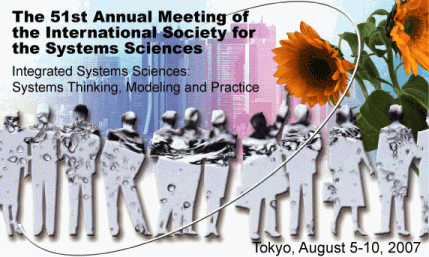Holistic Formal Analysis of Dilemmas of Negotiation
Keywords:
drama theory, dilemma, negotiationAbstract
In this paper, by assuming two-party negotiation as interaction system between two negotiators, we try to conduct formal analysis from a holistic point of view of dilemmas emerging in such negotiation. This paper firstly classifies negotiation processes empirically into two styles, i.e. assertive negotiation and positions-and-threats negotiation (Kijima, 2006), and then focuses on the latter to analyze it intensively. Assertive negotiation is negotiation carried out in the spirit of compromise. Each negotiator knows that he/she will get some, but not all of what he/she wants when the negotiation begins. The hope in negotiating assertively is that each negotiator fells that he/she wins. Rather than trying to win and gain power, assertive negotiator tries to achieve balance so that each gets some of what he/she wants. Assertive negotiation is often found in eastern culture like Japan. On the contrary, positions-and-threats negotiation seems especially typical in western culture. Each negotiator aims at achieving his/her desire by claiming positions and threats reciprocally in a straightforward way. It is dramatic model of negotiation that has been argued positions-and-threats negotiation intensively and focused on dilemmas that arise during the process. Howard (1996) proposed that to understand the negotiation process we should abandon the game metaphor but incorporate it into a wider framework using the metaphor of ‘drama’. Metaphors are very helpful to provide us with new viewpoints of our current framework and spark our creative thinking. This is because metaphors force us to understand something in a new terms or descriptions and reveal the alternative perspectives. The model assumes that in negotiation process we may decide what we want and guess what others will want, then do the best for ourselves, given what we think they will do. In the process, however, we are inevitably guaranteed to face dilemmas. The model analyzes the dilemmas of rationality and how they affect people. It recognizes that in face of these dilemmas people feel and express emotion, positive or negative, depending on the dilemma they face. This motivates them to redefine the situation they all face by re-examining their beliefs and values. Both Howard (1998) and Bryant (2003) propose six dilemmas, though they have not formalized them rigorously. They are rather ad hoc and it is not clear whether they are all and only dilemmas that emerge in negotiation process. In this paper we will argue this problem. First, we try to identify structural and process analysis of two-party negotiation. Structural features of two-party negotiation are described in terms of relationship between the parties such as symmetry/asymmetry of available information, power and/or authority, so that they are particularly crucial when we discuss negotiation mechanism. On the other hand, process models of two-party negotiation are concerned with description of its dynamics behaviour. Negotiation may be intuitively expressed as a reciprocal exchange of claims by the negotiators. It inevitably faces dilemmas caused by inconsistency between the claims so that it also has to try to resolve them. Inconsistency between the elements in negotiation might lead them to face dilemmas to be resolved in order to achieve agreement. Next, we formally define types of dilemmas that might arise in such negotiation in terms of dramatic model and identify elements for each negotiator that may generate dilemmas due to incredibility about his/her declaration. Then, after proposing some theoretical frameworks, we will apply the concepts of dramatic model using an example. Finally, we will discuss its findings and ideas for further researches.Published
2007-07-31
How to Cite
Hermawan, P., Kobayashi, N., & Kijima, K. (2007). Holistic Formal Analysis of Dilemmas of Negotiation. Proceedings of the 51st Annual Meeting of the ISSS - 2007, Tokyo, Japan, 51(2). Retrieved from https://journals.isss.org/index.php/proceedings51st/article/view/542
Issue
Section
Decision Systems

